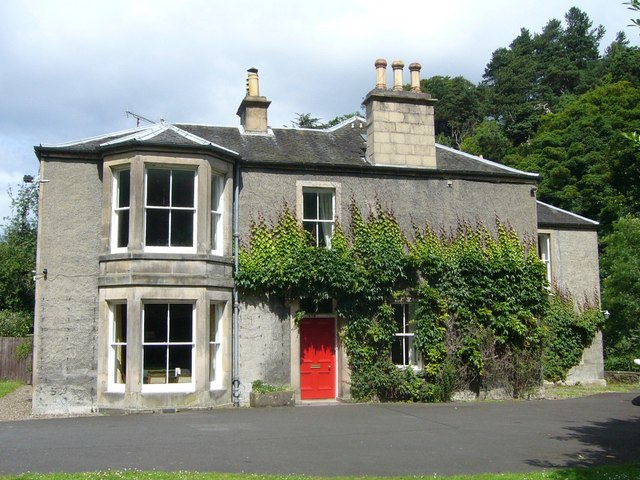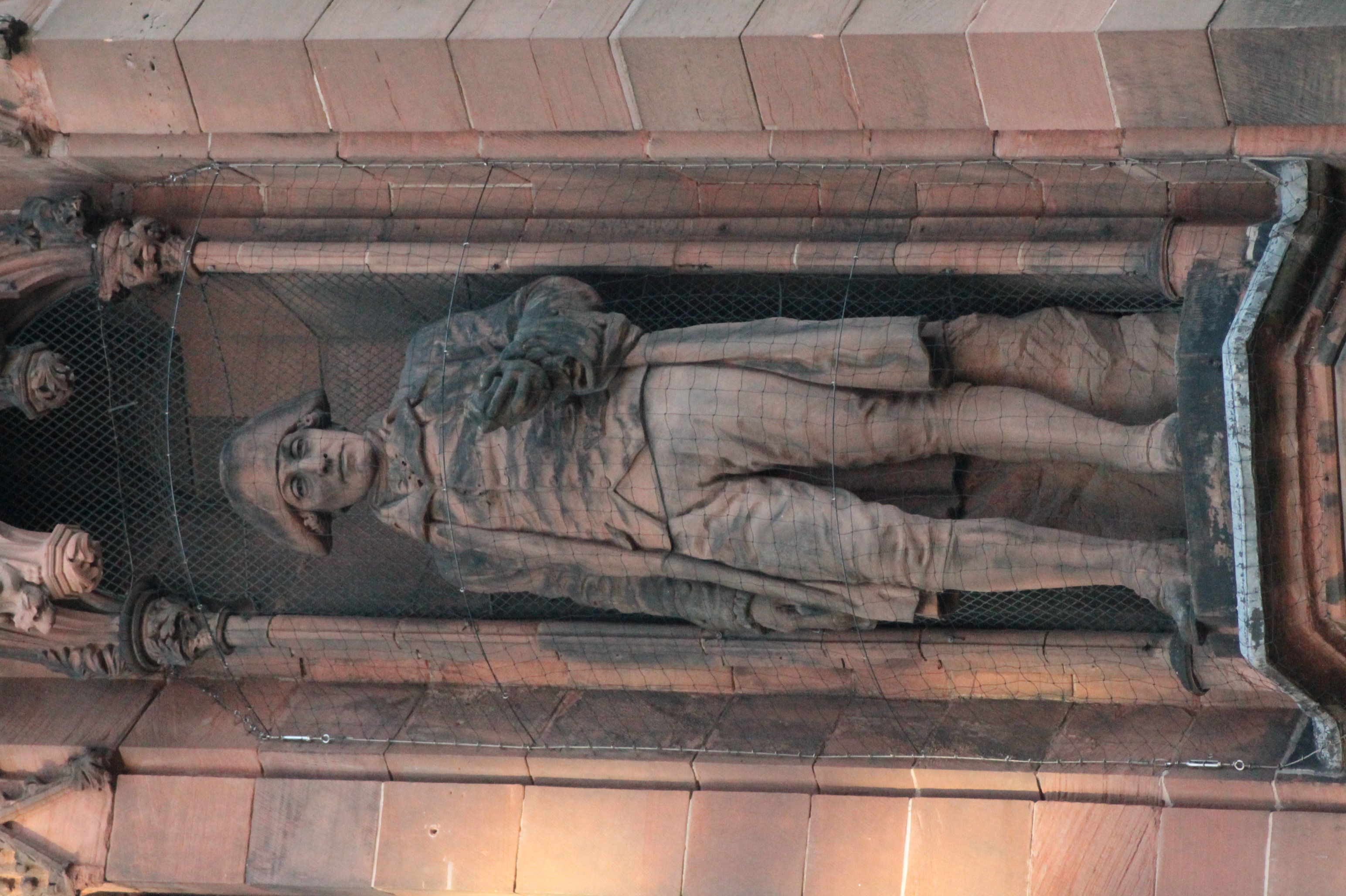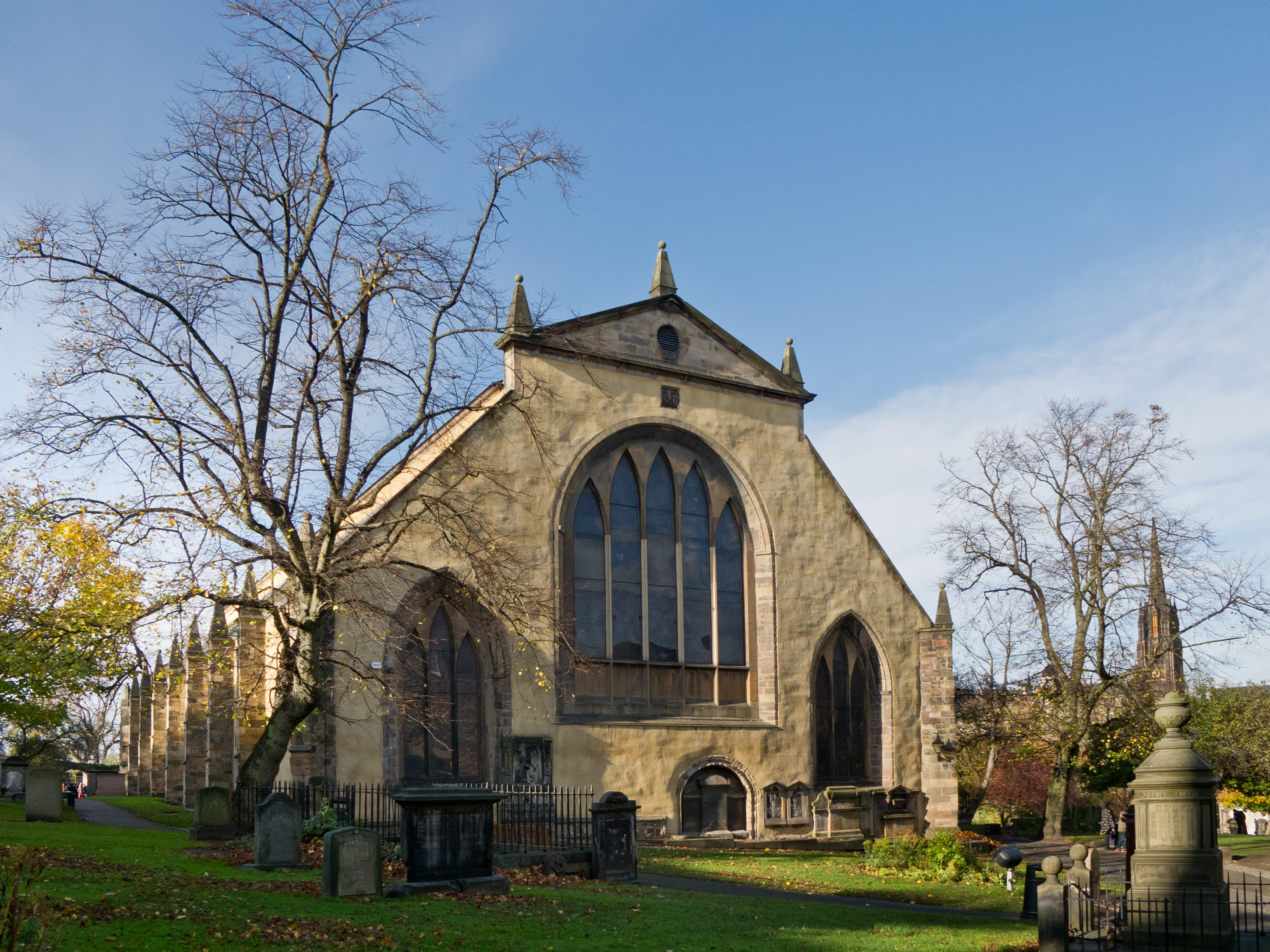|
Robert Freer (physician)
Robert Freer (or Frier) FRSE FRCPE (1745-8 April 1827) was a soldier and academic, who taught medicine at the University of Glasgow. He was Regius Professor of Medicine from 1796 until his death (31 years). He was twice President of the Medical Society of Edinburgh (1772-4 and 1775-8). He was President of the Royal College of Physicians and Surgeons of Glasgow in 1797. Life He was born in Perthshire. He studied medicine at the University of Aberdeen, graduating with an MA in 1765. He then undertook further studies at the University of Edinburgh and Leyden University in the Netherlands. In 1776 he was recorded as a member of the Glasgow Literary Society. In the same year he gave an eloquent speech to the Medical Society of Edinburgh while acting as their Senior President. In early life he served as an Ensign and military surgeon both in Europe and in the American war of independence, including at the Battle of Bunker Hill. In 1779 he settled in Glasgow as a physician, in which ... [...More Info...] [...Related Items...] OR: [Wikipedia] [Google] [Baidu] |
FRSE
Fellowship of the Royal Society of Edinburgh (FRSE) is an award granted to individuals that the Royal Society of Edinburgh, Scotland's national academy of science and letters, judged to be "eminently distinguished in their subject". This society received a royal charter in 1783, allowing for its expansion. Elections Around 50 new fellows are elected each year in March. there are around 1,650 Fellows, including 71 Honorary Fellows and 76 Corresponding Fellows. Fellows are entitled to use the post-nominal letters FRSE, Honorary Fellows HonFRSE, and Corresponding Fellows CorrFRSE. Disciplines The Fellowship is split into four broad sectors, covering the full range of physical and life sciences, arts, humanities, social sciences, education, professions, industry, business and public life. A: Life Sciences * A1: Biomedical and Cognitive Sciences * A2: Clinical Sciences * A3: Organismal and Environmental Biology * A4: Cell and Molecular Biology B: Physical, Engineering an ... [...More Info...] [...Related Items...] OR: [Wikipedia] [Google] [Baidu] |
Glasgow Royal Infirmary
The Glasgow Royal Infirmary (GRI) is a large teaching hospital. With a capacity of around 1,000 beds, the hospital campus covers an area of around , and straddles the Townhead and Dennistoun districts on the north-eastern fringe of the city centre of Glasgow, Scotland. It is managed by NHS Greater Glasgow and Clyde. It was originally opened in 1794, with the present main building dating from 1914. History Founding of the infirmary A Royal Charter was obtained in 1791 granting the Crown-owned land to the hospital. The infirmary was built beside Glasgow Cathedral on land that held the ruins of the Bishop's Castle, which dated from at least the 13th century but had been allowed to fall into disrepair. George Jardine, Professor of Logic, was appointed the first manager in January 1793. Designed by Robert and James Adam, the original Royal Infirmary building was opened in December 1794. The original Adams building had five floors (one underground) holding eight wards (givin ... [...More Info...] [...Related Items...] OR: [Wikipedia] [Google] [Baidu] |
Scottish Surgeons
Scottish usually refers to something of, from, or related to Scotland, including: *Scottish Gaelic, a Celtic Goidelic language of the Indo-European language family native to Scotland *Scottish English *Scottish national identity, the Scottish identity and common culture *Scottish people, a nation and ethnic group native to Scotland *Scots language, a West Germanic language spoken in lowland Scotland *Symphony No. 3 (Mendelssohn), a symphony by Felix Mendelssohn known as ''the Scottish'' See also *Scotch (other) *Scotland (other) *Scots (other) *Scottian (other) *Schottische The schottische is a partnered country dance that apparently originated in Bohemia. It was popular in Victorian era ballrooms as a part of the Bohemian folk-dance craze and left its traces in folk music of countries such as Argentina (" chotis" ... * {{disambiguation Language and nationality disambiguation pages ca:Escocès ... [...More Info...] [...Related Items...] OR: [Wikipedia] [Google] [Baidu] |
People From Perthshire
A person ( : people) is a being that has certain capacities or attributes such as reason, morality, consciousness or self-consciousness, and being a part of a culturally established form of social relations such as kinship, ownership of property, or legal responsibility. The defining features of personhood and, consequently, what makes a person count as a person, differ widely among cultures and contexts. In addition to the question of personhood, of what makes a being count as a person to begin with, there are further questions about personal identity and self: both about what makes any particular person that particular person instead of another, and about what makes a person at one time the same person as they were or will be at another time despite any intervening changes. The plural form "people" is often used to refer to an entire nation or ethnic group (as in "a people"), and this was the original meaning of the word; it subsequently acquired its use as a plural form of ... [...More Info...] [...Related Items...] OR: [Wikipedia] [Google] [Baidu] |
Fellows Of The Royal Society Of Edinburgh
The Royal Society of Edinburgh is Scotland's national academy of science and letters. It is a registered charity that operates on a wholly independent and non-partisan basis and provides public benefit throughout Scotland. It was established in 1783. , there are around 1,800 Fellows. The Society covers a broader selection of fields than the Royal Society of London, including literature and history. Fellowship includes people from a wide range of disciplines – science & technology, arts, humanities, medicine, social science, business, and public service. History At the start of the 18th century, Edinburgh's intellectual climate fostered many clubs and societies (see Scottish Enlightenment). Though there were several that treated the arts, sciences and medicine, the most prestigious was the Society for the Improvement of Medical Knowledge, commonly referred to as the Medical Society of Edinburgh, co-founded by the mathematician Colin Maclaurin in 1731. Maclaurin was unhap ... [...More Info...] [...Related Items...] OR: [Wikipedia] [Google] [Baidu] |
1827 Deaths
Eighteen or 18 may refer to: * 18 (number), the natural number following 17 and preceding 19 * one of the years 18 BC, AD 18, 1918, 2018 Film, television and entertainment * ''18'' (film), a 1993 Taiwanese experimental film based on the short story ''God's Dice'' * ''Eighteen'' (film), a 2005 Canadian dramatic feature film * 18 (British Board of Film Classification), a film rating in the United Kingdom, also used in Ireland by the Irish Film Classification Office * 18 (''Dragon Ball''), a character in the ''Dragon Ball'' franchise * "Eighteen", a 2006 episode of the animated television series '' 12 oz. Mouse'' Music Albums * ''18'' (Moby album), 2002 * ''18'' (Nana Kitade album), 2005 * '' 18...'', 2009 debut album by G.E.M. Songs * "18" (5 Seconds of Summer song), from their 2014 eponymous debut album * "18" (One Direction song), from their 2014 studio album ''Four'' * "18", by Anarbor from their 2013 studio album ''Burnout'' * "I'm Eighteen", by Alice Cooper common ... [...More Info...] [...Related Items...] OR: [Wikipedia] [Google] [Baidu] |
1745 Births
Events January–March * January 7 – War of the Austrian Succession: The Austrian Army, under the command of Field Marshal Károly József Batthyány, makes a surprise attack at Amberg and the winter quarters of the Bavarian Army, and scatters the Bavarian defending troops, then captures the Bavarian capital at Munich * January 8 – The Quadruple Alliance treaty is signed at Warsaw by Great Britain, Austria, the Dutch Republic and the Duchy of Saxony. * January 20 – Less than two weeks after the disastrous Battle of Amberg leaves Bavaria undefended, the electorate's ruler (and Holy Roman Emperor) Karl VII Albrecht dies from gout at the age of 47, leaving the duchy without an adult to lead it. His 17-year-old son, Maximilian III Joseph, signs terms of surrender in April. * February 22 – The ruling white colonial government on the island of Jamaica foils a conspiracy by about 900 black slaves, who had been plotting to seize control and ... [...More Info...] [...Related Items...] OR: [Wikipedia] [Google] [Baidu] |
Glasgow
Glasgow ( ; sco, Glesca or ; gd, Glaschu ) is the most populous city in Scotland and the fourth-most populous city in the United Kingdom, as well as being the 27th largest city by population in Europe. In 2020, it had an estimated population of 635,640. Straddling the border between historic Lanarkshire and Renfrewshire, the city now forms the Glasgow City Council area, one of the 32 council areas of Scotland, and is governed by Glasgow City Council. It is situated on the River Clyde in the country's West Central Lowlands. Glasgow has the largest economy in Scotland and the third-highest GDP per capita of any city in the UK. Glasgow's major cultural institutions – the Burrell Collection, Kelvingrove Art Gallery and Museum, the Royal Conservatoire of Scotland, the Royal Scottish National Orchestra, Scottish Ballet and Scottish Opera – enjoy international reputations. The city was the European Capital of Culture in 1990 and is notable for its architectur ... [...More Info...] [...Related Items...] OR: [Wikipedia] [Google] [Baidu] |
John Walker (natural Historian)
John Walker FRSE (1731–1803) was a Scottish minister and natural historian. He was Regius Professor of Natural history at the University of Edinburgh from 1779 to 1803. He was joint founder of the Royal Society of Edinburgh in 1783 and Moderator of the General Assembly of the Church of Scotland in 1790. Overview Walker was a protégé of the chemist William Cullen and a colleague of Dugald Stewart, Joseph Black and several other Edinburgh professors who shaped the intellectual milieu of the Scottish Enlightenment. During his long career, he became a distinguished botanist, chemist, geologist, hydrologist, meteorologist, mineralogist, zoologist and economic historian, as well as being a minister in the Church of Scotland. Walker was one of the main scientific consultants of his day, serving as an agricultural, industrial or mining advisor to many influential Scottish landowners, including the judge advocate Lord Kames, George III's prime minister Lord Bute, and Lord ... [...More Info...] [...Related Items...] OR: [Wikipedia] [Google] [Baidu] |
James Hutton
James Hutton (; 3 June O.S.172614 June 1726 New Style. – 26 March 1797) was a Scottish geologist, agriculturalist, chemical manufacturer, naturalist and physician. Often referred to as the father of modern geology, he played a key role in establishing geology as a modern science. Hutton advanced the idea that the physical world's remote history can be inferred from evidence in present-day rocks. Through his study of features in the landscape and coastlines of his native Scottish lowlands, such as Salisbury Crags or Siccar Point, he developed the theory that geological features could not be static but underwent continuing transformation over indefinitely long periods of time. From this he argued, in agreement with many other early geologists, that the Earth could not be young. He was one of the earliest proponents of what in the 1830s became known as uniformitarianism, the science which explains features of the Earth's crust as the outcome of continuing natural proc ... [...More Info...] [...Related Items...] OR: [Wikipedia] [Google] [Baidu] |
Thomas Charles Hope
Thomas Charles Hope (21 July 1766 – 13 June 1844) was a British physician, chemist and lecturer. He proved the existence of the element strontium, and gave his name to Hope's Experiment, which shows that water reaches its maximum density at . In 1815 Hope was elected as president of the Royal College of Physicians of Edinburgh (1815–19), and as vice-president of Royal Society of Edinburgh (1823–33) during the presidencies of Walter Scott and Thomas Makdougall Brisbane. He founded a chemistry prize at the University of Edinburgh. Charles Darwin was one of Hope's students, and Darwin viewed his chemistry lectures as highlights in his otherwise largely dull education at the University. Early life Born in Edinburgh, the third son of Juliana Stevenson and surgeon and botanist John Hope, he lived at High School Yards on the south side of the old town. He was educated next door to his house at the High School, the University of Edinburgh (MD 1787) and the University o ... [...More Info...] [...Related Items...] OR: [Wikipedia] [Google] [Baidu] |
James Finlayson (minister)
James Finlayson, FRSE (15 February 1758 – 28 January 1808), was a minister in the Church of Scotland who served as Moderator of the General Assembly of the Church of Scotland 1802/3. Life Finlayson was born the eldest son of William Finlayson on 15 February 1758, at Nether Cambushinnie Farm, near Kinbuck in the parish of Dunblane, Perthshire, where his ancestors had been settled for several centuries. He made rapid progress at school (first Kinbuck then Dunblane), and began his religious studies in the University of Glasgow at the age of 14. He held two tutorships, and subsequently became amanuensis to Professor Anderson, who had discovered his abilities. In 1782, he became domestic tutor to two sons of Sir William Murray of Ochtertyre. As the family spent the winter in Edinburgh, Finlayson continued his studies at the university. He was licensed to preach in 1785. In this year, the Duke of Atholl offered Finlayson a position as minister of Dunkeld, which he declined, as Sir ... [...More Info...] [...Related Items...] OR: [Wikipedia] [Google] [Baidu] |

_1938.jpg)





